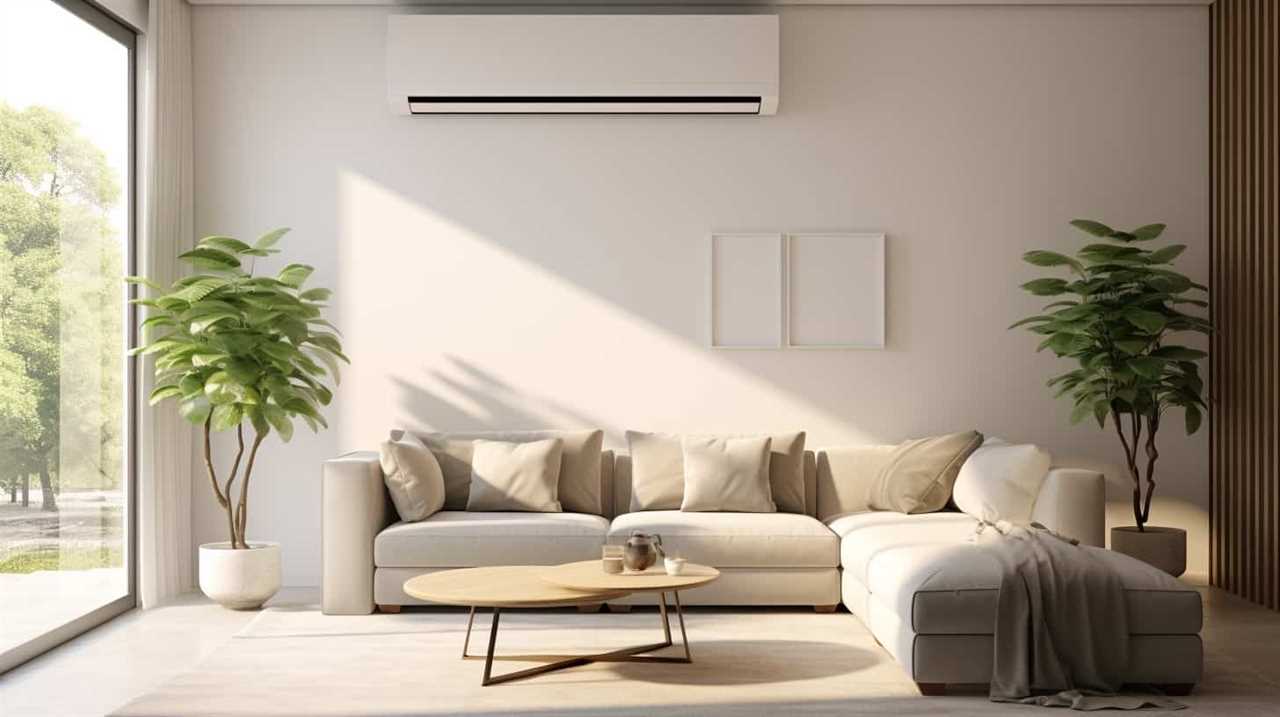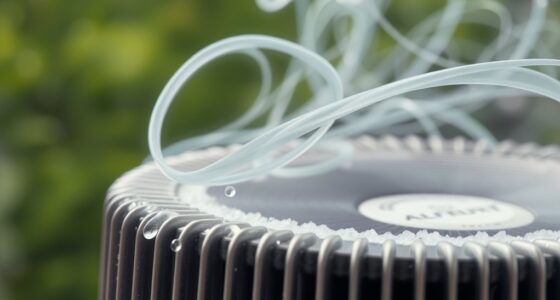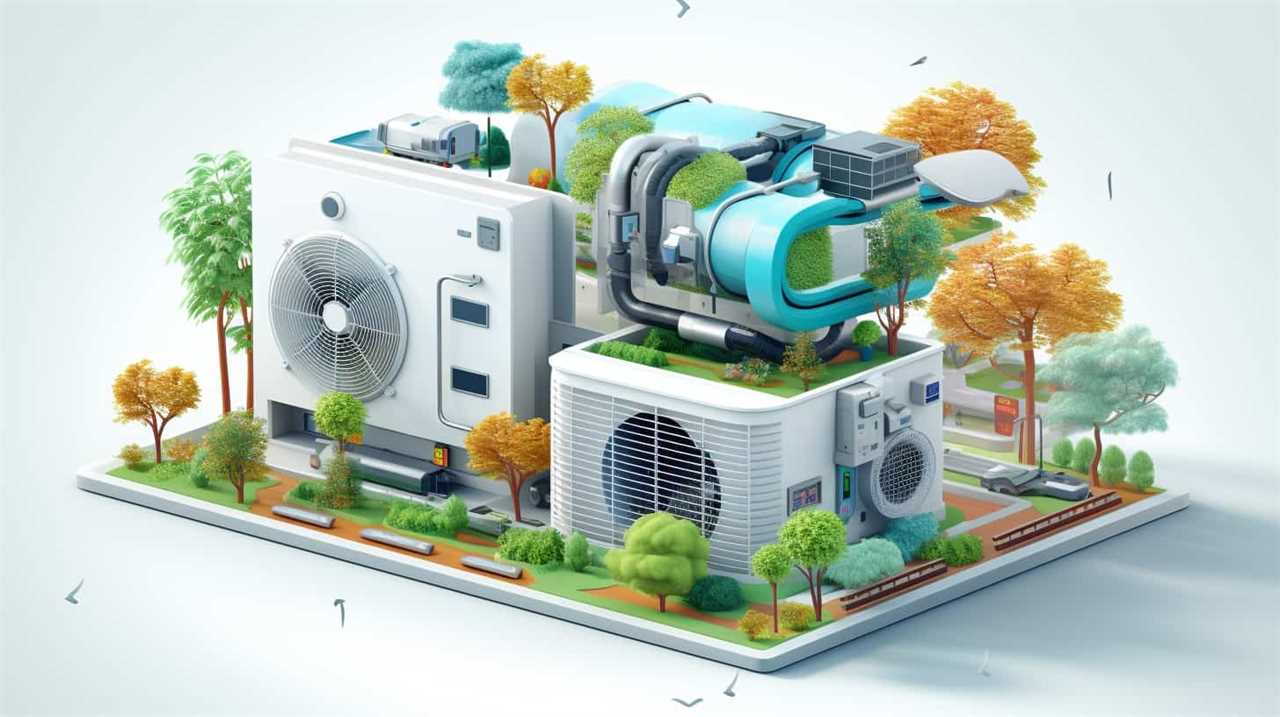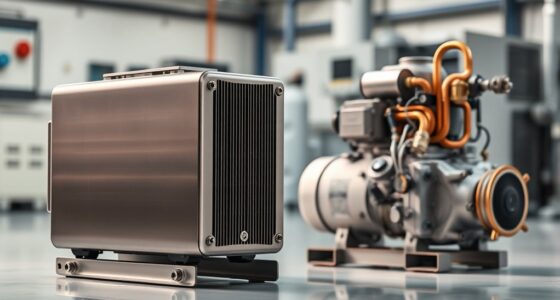Regular maintenance is essential for keeping our air conditioning heat pumps performing at their best. A properly maintained system not only ensures our comfort but also leads to energy cost savings.
In this article, we demystify the essential tasks involved in heat pump maintenance. From cleaning the outdoor unit to checking air filters and maintaining proper refrigerant levels, we’ll provide you with the knowledge and tips you need to keep your system running smoothly.
Key Takeaways
- Regular maintenance is crucial for optimal performance and longevity of air conditioning heat pumps.
- Neglecting maintenance can lead to decreased efficiency, higher energy bills, and system breakdowns.
- Regularly cleaning or replacing filters ensures efficient functioning and increases energy efficiency.
- Regular coil inspection ensures efficient functioning and prolongs the heat pump’s lifespan.
Importance of Regular Maintenance
Regular maintenance is crucial for ensuring the optimal performance and longevity of our air conditioning heat pump.
The frequency of maintenance plays a significant role in keeping the system running smoothly. Regularly scheduled inspections and tune-ups should be performed at least once a year by a qualified technician.

This will help identify any potential issues and address them before they escalate into costly repairs. Neglecting regular maintenance can lead to a variety of problems, including decreased efficiency, higher energy bills, and even system breakdowns.
The cost of neglecting maintenance far outweighs the expense of routine servicing. By investing in regular maintenance, we can prevent major repairs, extend the lifespan of our air conditioning heat pump, and enjoy consistent comfort throughout the year.
Common Maintenance Tasks
When it comes to maintaining your air conditioning heat pump, there are several common tasks that should be performed regularly.
One important task is cleaning the filters, as this ensures proper airflow and prevents dust and debris from entering the system.

Another task is inspecting the coils, which should be done frequently to check for any buildup or damage.
Lastly, lubricating the various components of the heat pump is crucial for optimal performance and to reduce wear and tear.
Filter Cleaning Importance
While it may seem like a simple task, it is essential to regularly clean the filters of your air conditioning heat pump. Proper filter maintenance is crucial for the efficient functioning of your system and to ensure clean and healthy air circulation in your home. Neglecting filter cleaning can lead to reduced airflow, decreased cooling/heating performance, and increased energy consumption. It is recommended to clean or replace the filters every 2-3 months, depending on the level of dust and contaminants in your environment. Regular cleaning can be done by following the manufacturer’s instructions and using a vacuum cleaner or water and mild detergent. However, in some cases, air filter replacement may be necessary. Additionally, professional maintenance should be scheduled annually to ensure the overall performance and longevity of your air conditioning heat pump.
| Importance of Filter Cleaning | Benefits of Regular Maintenance | How Often to Clean Filters |
|---|---|---|
| Ensures efficient functioning | Increases energy efficiency | Every 2-3 months |
| Improves air quality | Enhances cooling/heating performance | |
| Reduces dust and allergens | Extends the lifespan of the equipment |
Coil Inspection Frequency
We should always prioritize the inspection of the coils to ensure efficient functioning and prolong the lifespan of our air conditioning heat pump. Coils play a crucial role in the heat transfer process, and any issues with them can lead to reduced performance and even system failure. Regular inspection of the coils allows us to identify and address any problems promptly, preventing further damage and costly repairs.
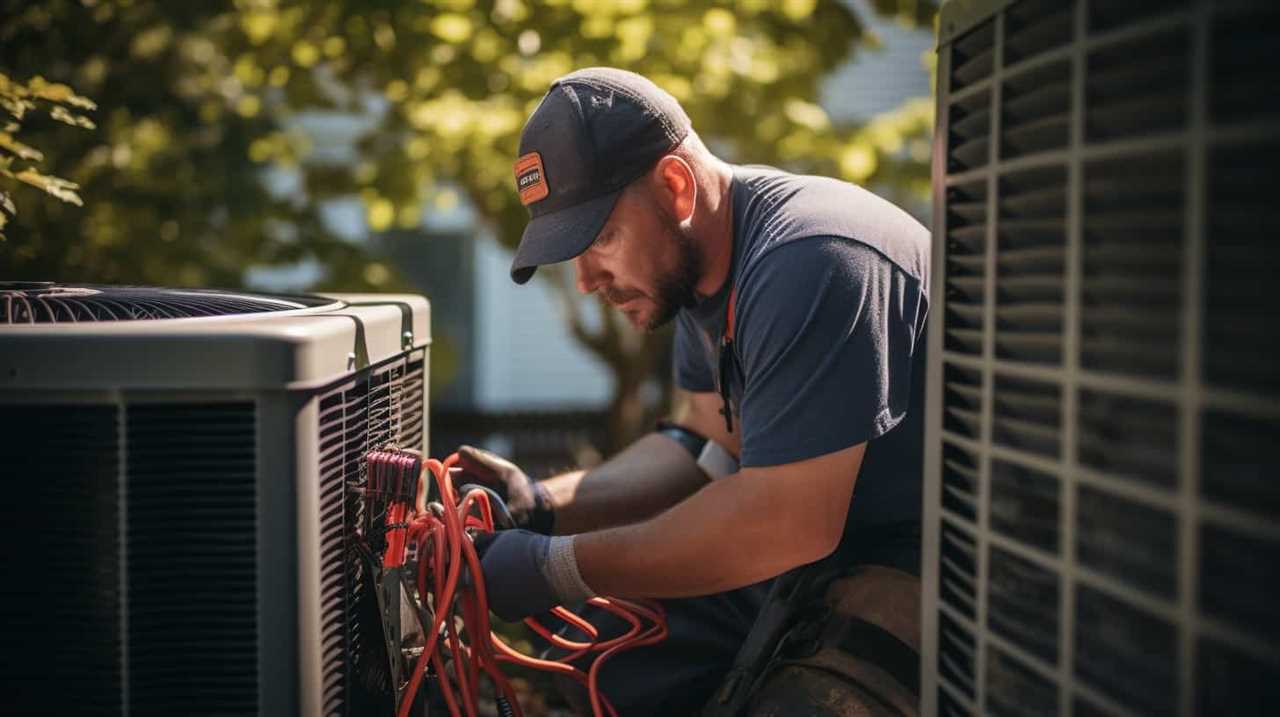
One common maintenance task is coating inspection. Over time, the coil’s protective coating can deteriorate, exposing it to corrosion and reducing its effectiveness. By regularly inspecting the coating, we can identify any areas that need repair or reapplication.
Another important task is condenser cleaning. Dust, dirt, and debris can accumulate on the condenser coils, inhibiting heat transfer and causing the system to work harder. Regular cleaning ensures optimal performance and energy efficiency.
Lubrication for Optimal Performance
How often should we lubricate the components of our air conditioning heat pump for optimal performance?
Proper lubrication is crucial to ensure the smooth operation of all moving parts in your system. It’s recommended to lubricate the motor bearings and fan blades once a year to prevent friction and reduce wear and tear. Regular lubrication also helps to extend the lifespan of your heat pump.

When performing this maintenance task, it’s important to use the correct type and amount of lubricant specified by the manufacturer. Additionally, while lubricating, it’s a good time to inspect for refrigerant leaks and clean the condenser coil.
Cleaning and Inspecting the Outdoor Unit
Inspecting and cleaning the outdoor unit is an essential step in maintaining the efficiency and performance of our air conditioning heat pump. Outdoor unit troubleshooting is crucial to identify any potential issues that may impact the unit’s functionality.
By regularly inspecting the outdoor unit, we can prevent coil damage and ensure optimal performance. One common problem to look out for is the accumulation of dirt, leaves, or debris around the unit. These obstructions can restrict airflow and reduce the unit’s efficiency.
It’s important to clean the outdoor unit regularly, using a soft brush or cloth to remove any dirt or debris. Additionally, inspecting the unit for any signs of damage, such as bent fins or leaks, allows us to address these issues promptly and prevent further damage.
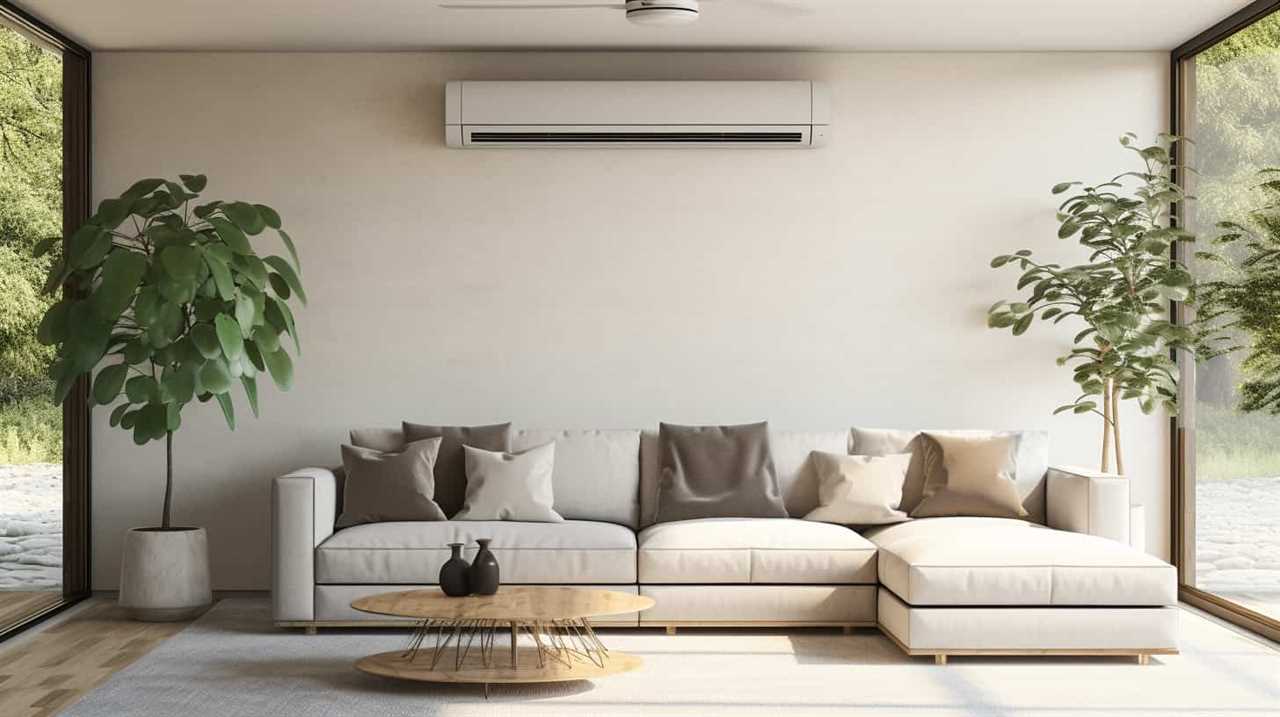
Taking the time to clean and inspect the outdoor unit will help us maintain the longevity and effectiveness of our air conditioning heat pump.
Checking and Replacing Air Filters
When it comes to air conditioning heat pump maintenance, one of the most important tasks is checking and replacing air filters regularly.
Regularity is key to ensuring the optimal performance of your system.
Clean filters not only improve air quality but also enhance the efficiency of the heat pump by allowing proper airflow.
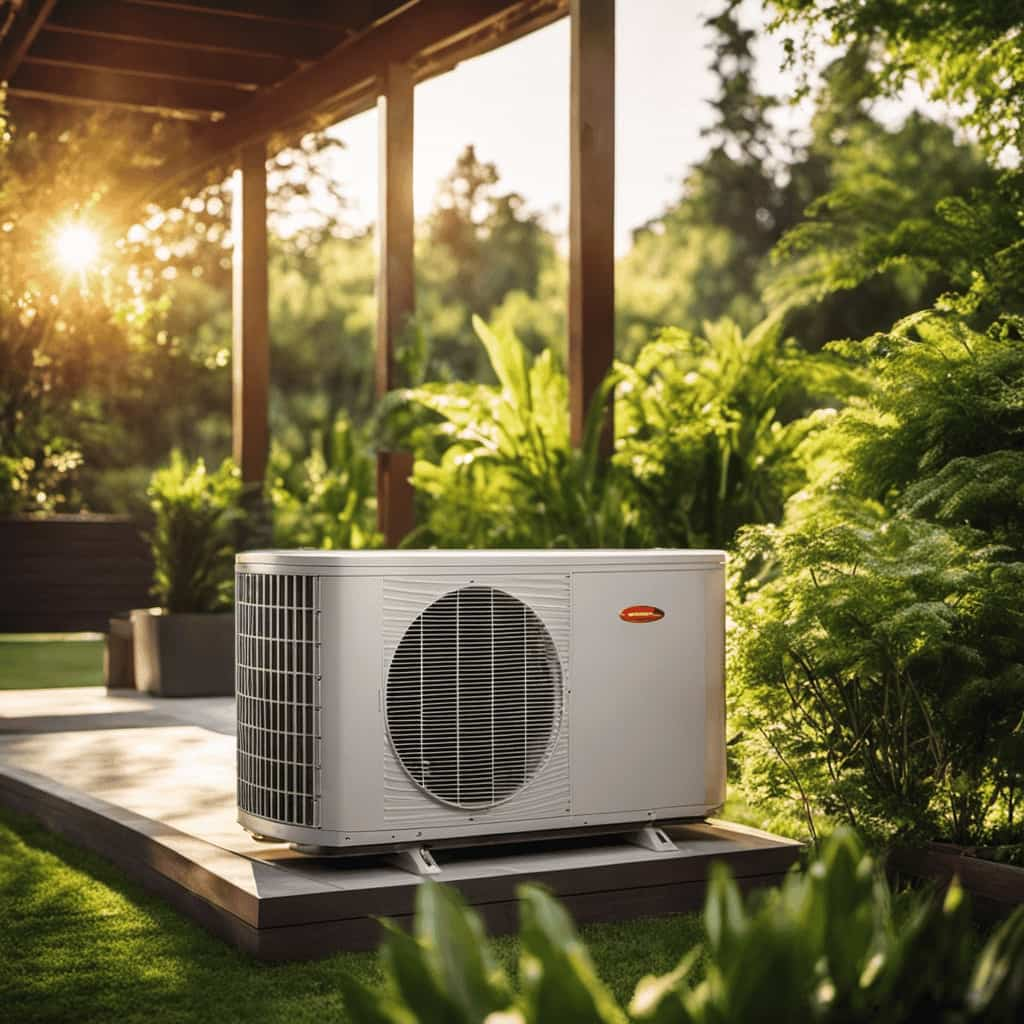
Importance of Regularity
We should regularly check and replace our air filters to ensure optimal performance and efficiency of our air conditioning heat pumps. By scheduling regular air filter maintenance, we can reap the following benefits of preventative maintenance:
-
Improved Air Quality: Clean air filters trap dust, pollen, and other airborne particles, preventing them from circulating in our homes. This leads to healthier indoor air quality and reduces the risk of allergies and respiratory issues.
-
Energy Efficiency: Clogged air filters restrict airflow, forcing the heat pump to work harder and consume more energy. By regularly replacing air filters, we can maintain the efficiency of our system and lower our energy bills.
-
Longer Lifespan: Dirty air filters can cause strain on the heat pump, leading to premature wear and tear. Regular maintenance ensures that the system operates smoothly, prolonging its lifespan.
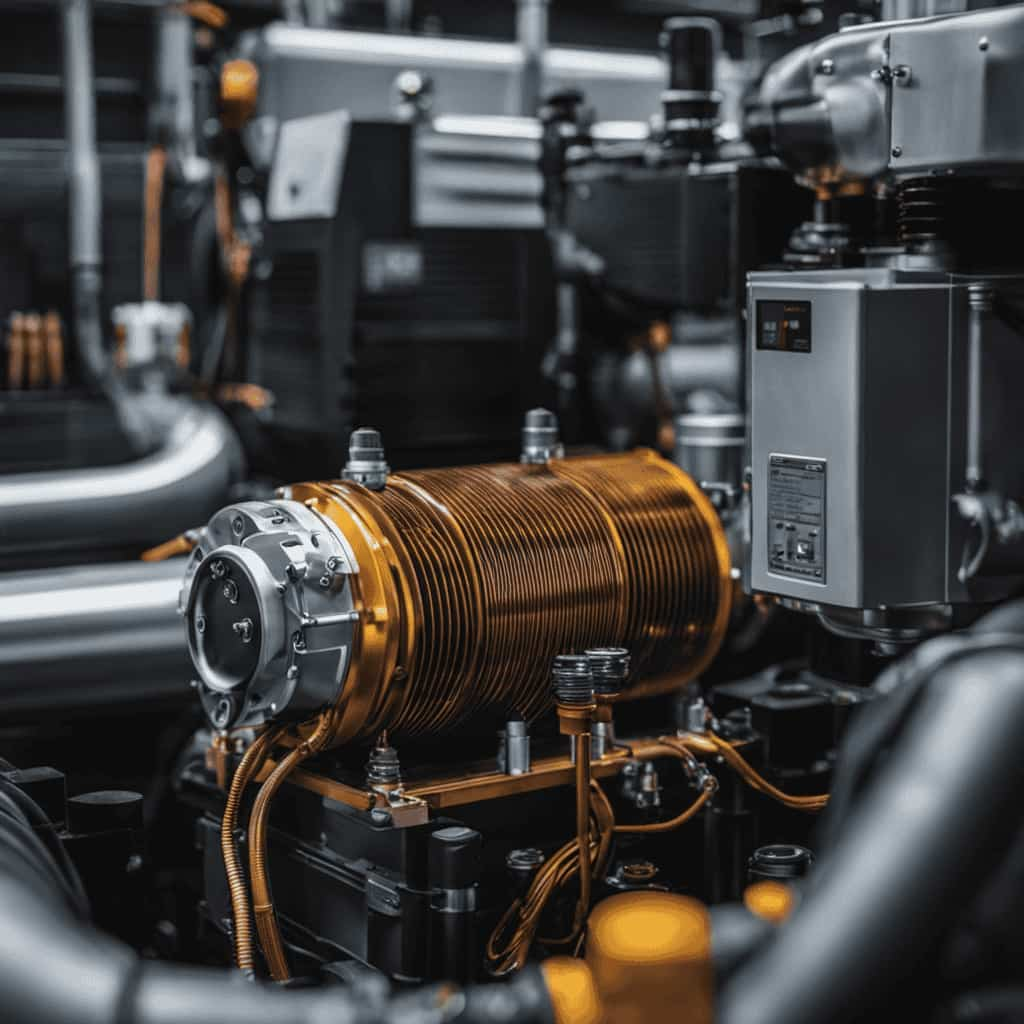
-
Cost Savings: By avoiding expensive repairs and premature replacements, regular air filter maintenance can save us money in the long run.
Regularly checking and replacing air filters is a simple yet crucial step in maintaining the performance and efficiency of our air conditioning heat pumps.
Benefits of Clean Filters
The clean filters in our air conditioning heat pumps provide us with several benefits, including improved air quality, energy efficiency, longer lifespan, and cost savings. Regularly checking and replacing air filters is crucial to ensuring these benefits.
First and foremost, clean filters improve the air quality in our homes by trapping dust, pollen, and other allergens, preventing them from circulating in the air we breathe.
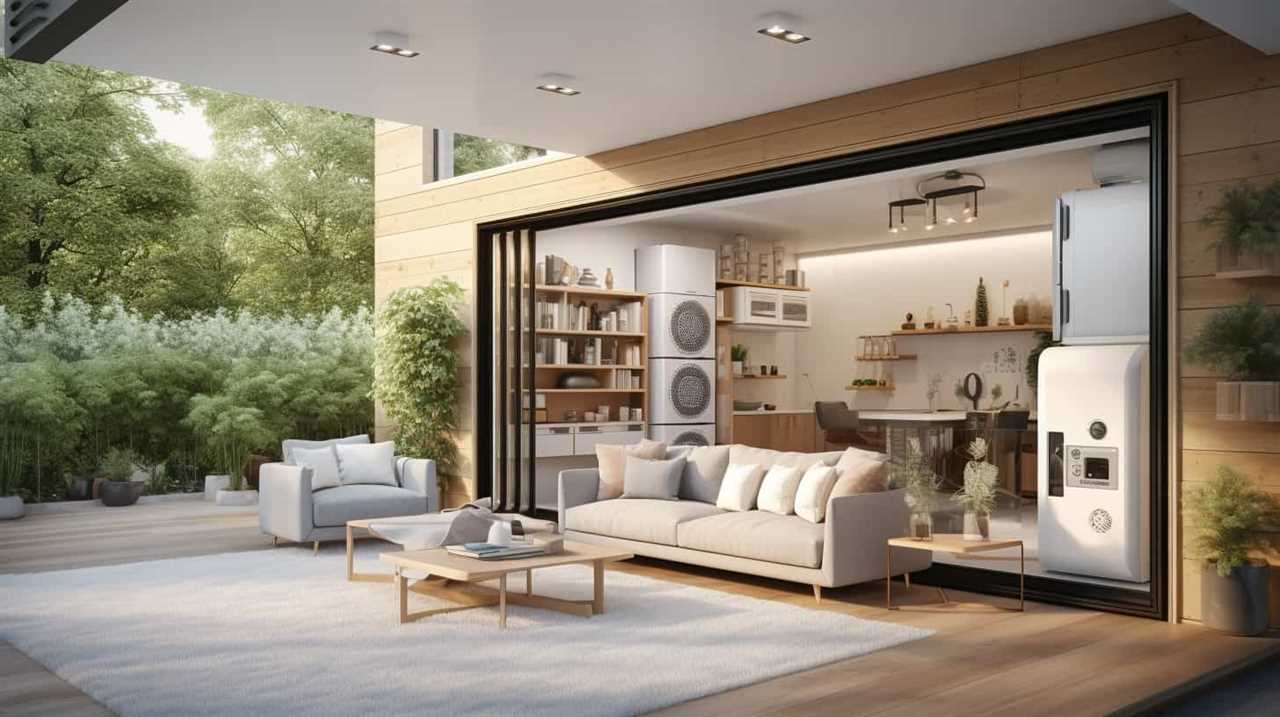
Additionally, clean filters allow for improved efficiency in our heat pumps, as they allow for better airflow and reduce strain on the system. This increased efficiency not only leads to lower energy consumption and reduced utility bills but also extends the lifespan of our HVAC equipment.
By preventing dust and debris from accumulating on the heat pump’s internal components, clean filters reduce the risk of system breakdowns and costly repairs.
Therefore, making sure our air filters are clean and replacing them as needed is an essential part of maintaining the efficiency and longevity of our air conditioning heat pumps.
Maintaining Proper Refrigerant Levels
Our responsibility is to regularly check and maintain the proper refrigerant levels in our air conditioning heat pump. Maintaining the correct amount of refrigerant is crucial for the efficient operation of our system and to ensure optimal cooling and heating performance. Here are four key steps to help us maintain proper refrigerant levels:

-
Regular inspections: Conduct routine inspections to check for any signs of refrigerant leaks, such as oil stains, ice buildup, or decreased cooling capacity.
-
Leak detection: Utilize advanced leak detection techniques, such as electronic leak detectors or ultraviolet dyes, to identify and locate any refrigerant leaks accurately.
-
Repairing leaks: Once identified, promptly repair any refrigerant leaks to prevent further loss and maintain optimal levels.
-
Recharging refrigerant: If necessary, recharge refrigerant to the manufacturer’s recommended levels using the appropriate type and amount specified for our system.
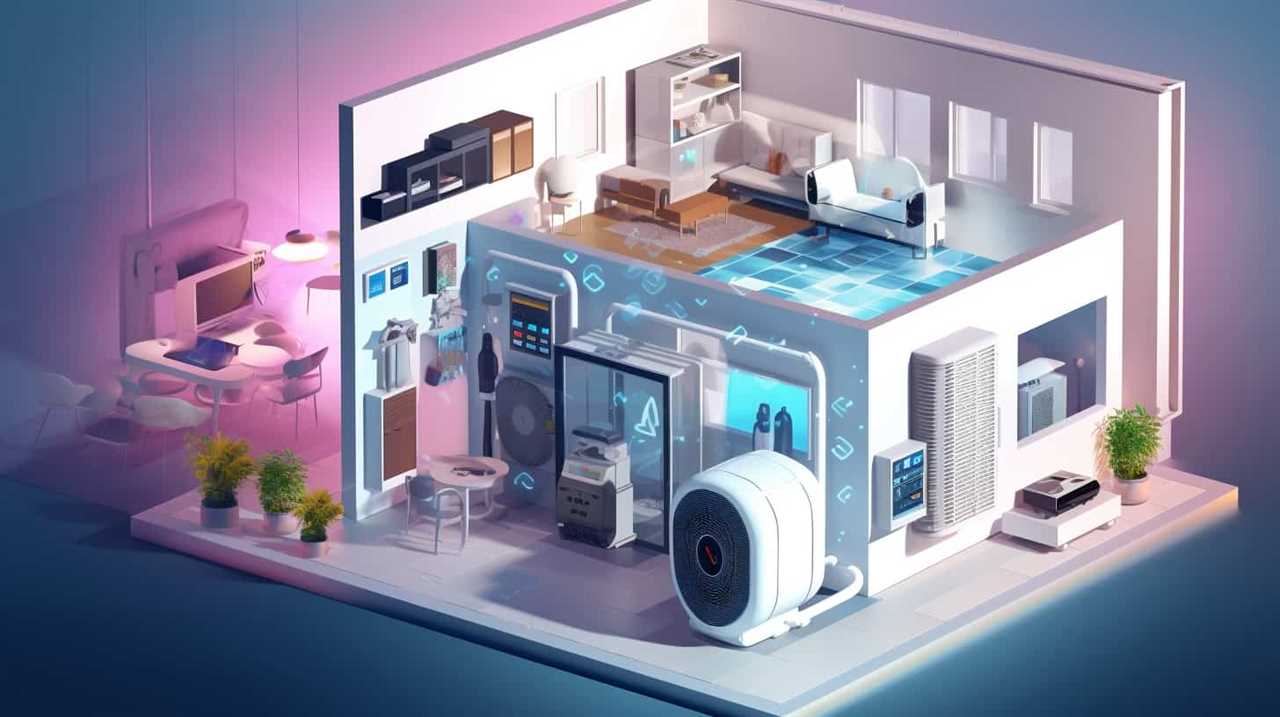
Tips for DIY Maintenance
For effective DIY maintenance, it is important to regularly clean and replace air filters, as well as inspect and clean the outdoor unit of our air conditioning heat pump. By following these simple maintenance tasks, we can ensure that our heat pump operates efficiently and effectively. Cleaning and replacing air filters helps to improve indoor air quality and maintain proper airflow, while inspecting and cleaning the outdoor unit helps to prevent debris buildup and maintain optimal performance. Additionally, DIY maintenance offers several benefits, including cost savings, increased lifespan of the heat pump, and the ability to troubleshoot common issues. To help you get started with DIY maintenance, here are some common issues you may encounter and their troubleshooting solutions:
| Common Issues | Troubleshooting Solutions |
|---|---|
| Lack of cooling | Check thermostat settings, clean air filters, and ensure proper airflow. |
| Strange noises | Inspect fan blades and motor, tighten loose components, and lubricate moving parts. |
| Water leaks | Check condensate drain pan and line for clogs, and ensure proper drainage. |
Frequently Asked Questions
How Often Should I Schedule Professional Maintenance for My Air Conditioning Heat Pump?
We recommend scheduling professional maintenance for your air conditioning heat pump once a year. This ensures optimal performance and helps prevent major issues. DIY maintenance, such as cleaning or replacing filters, should be done regularly as well.
Can I Perform Air Filter Cleaning and Replacement Myself, or Should I Hire a Professional?
We can handle DIY air filter cleaning, but professional air filter replacement is best. Our team is knowledgeable and precise, ensuring your system is properly maintained. Let us serve you.
What Are the Signs That Indicate My Air Conditioning Heat Pump May Need Refrigerant Level Maintenance?
If your air conditioning heat pump is experiencing insufficient cooling or longer cooling cycles, it may indicate a refrigerant issue. Our team can assist with refrigerant leak detection and troubleshooting to ensure optimal performance.
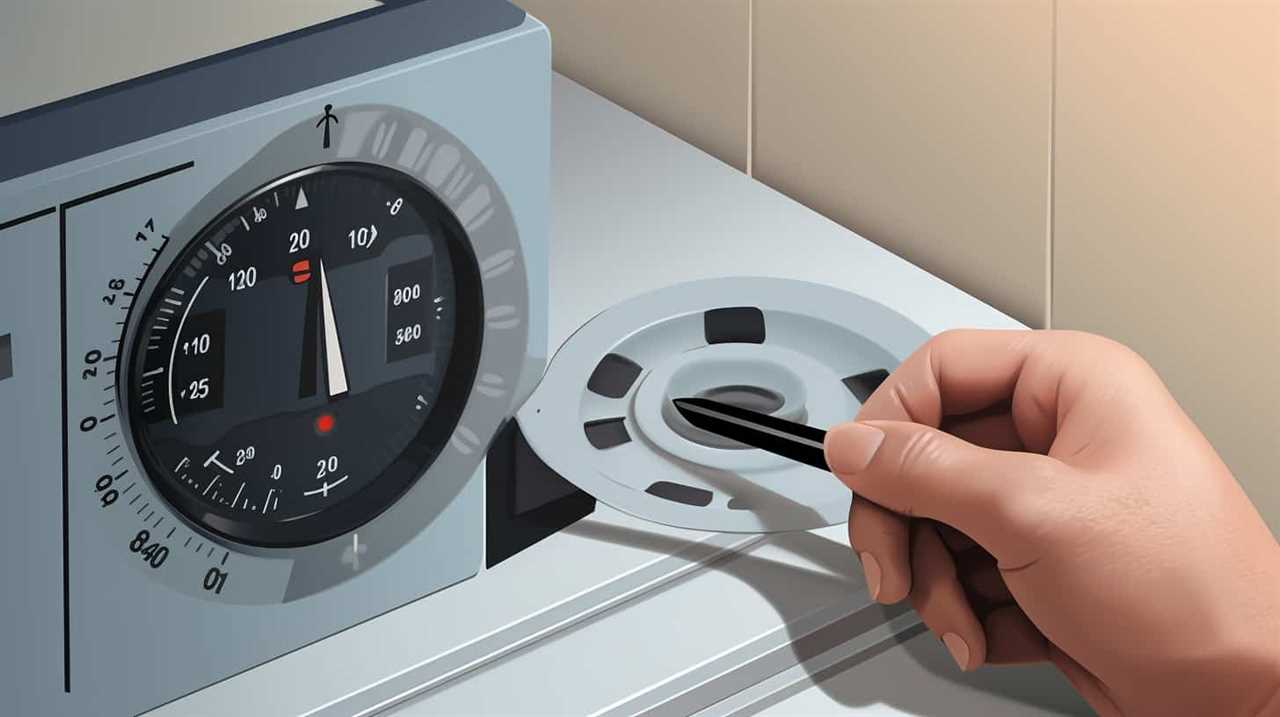
Are There Any Specific Safety Precautions I Should Take When Cleaning and Inspecting the Outdoor Unit?
When cleaning and inspecting the outdoor unit, it is crucial to prioritize safety precautions. Regular maintenance of the outdoor unit is important for its optimal function and to prevent any potential hazards.
Is It Necessary to Perform Regular Maintenance on My Air Conditioning Heat Pump Even if It Appears to Be Functioning Properly?
Regular maintenance is essential for the optimal performance and longevity of our air conditioning heat pumps. It ensures efficient operation, prevents costly breakdowns, and improves indoor air quality. Professional maintenance provides thorough inspections, cleaning, and troubleshooting.
Conclusion
In conclusion, regularly maintaining your air conditioning heat pump is crucial for its optimal performance and longevity.
By cleaning and inspecting the outdoor unit, checking and replacing air filters, and maintaining proper refrigerant levels, you can ensure that your system functions efficiently and effectively.
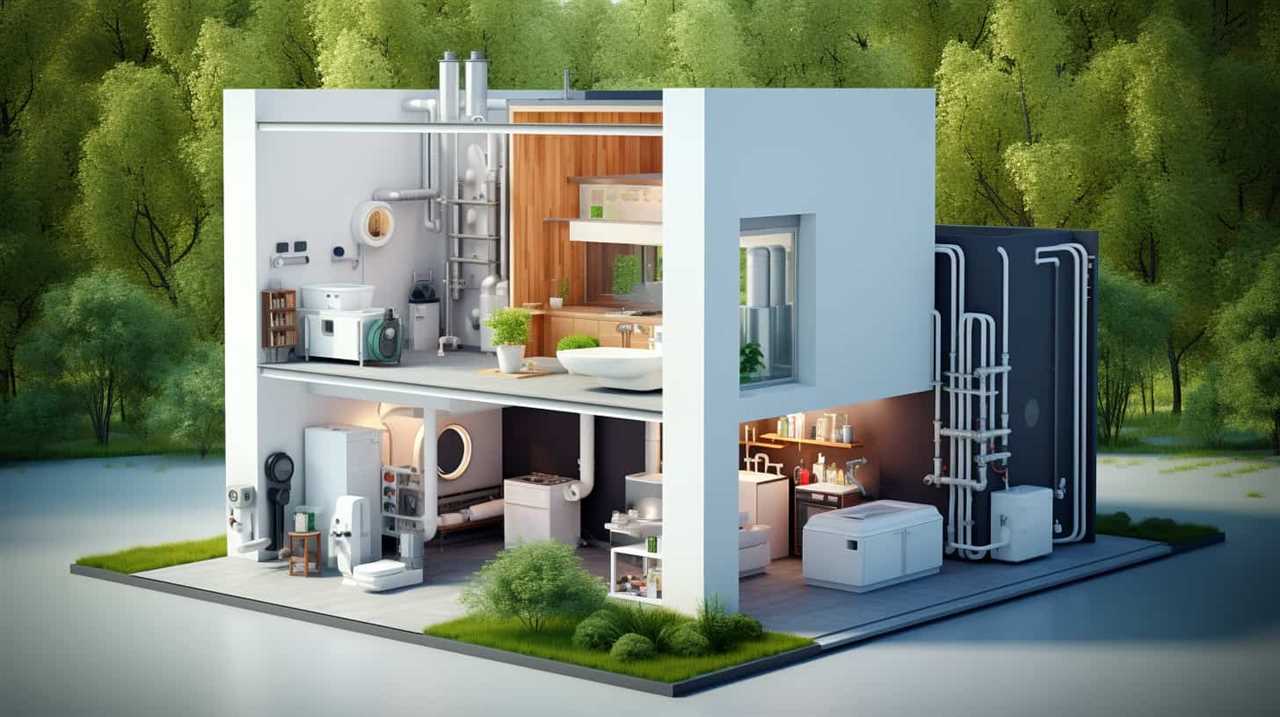
Remember, a well-maintained heat pump is like a superhero, silently battling heat and humidity to keep your indoor environment cool and comfortable.
So, don’t neglect its maintenance and let it be your ultimate cooling ally.
